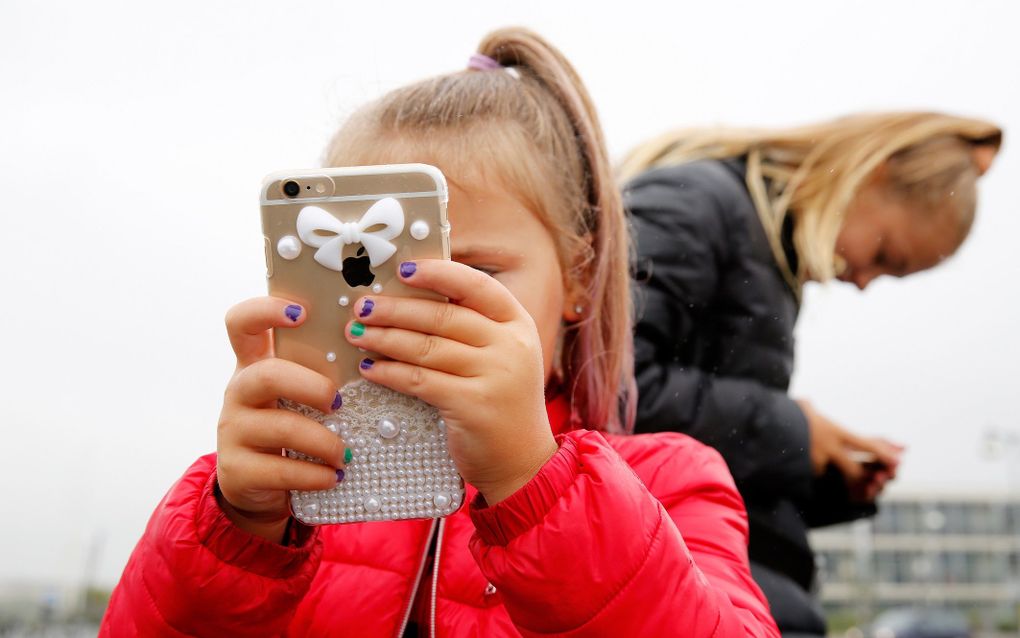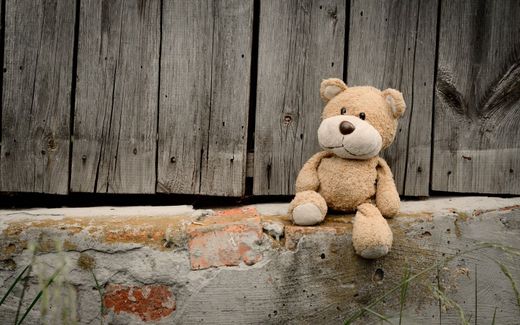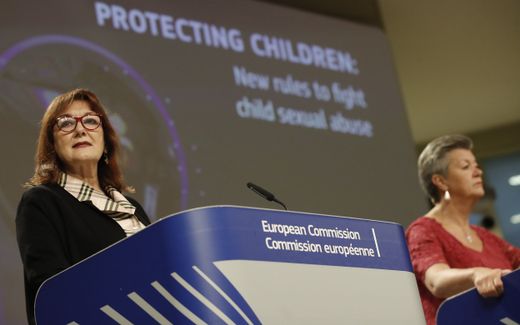France proposes digital certificates to protect children against porn

Girl with a smartphone. Photo ANP, Bas Czerwinski
Western Europe
France will soon provide better age verification systems to protect minors against pornographic content.
The Minister Delegate for Digital Affairs said to the Le Parisian that 2023 marks the end of access to pornographic sites for our children.
“France will be the first country in the world to propose a solution like this,” Jean-Noël Barrot said to the newspaper which was quoted by La Croix.
National territory
As for internet sites that are targeted for adults, Barrot also said that they will have to comply to the new regulations “under the penalty of seeing the distribution prohibited on the national territory.”
Current age verification systems have traditionally relied on checking a box that declares the user to “be of legal age” or certifying the age by entering a date of birth. However, the new digital certificates will ensure greater accuracy in verifying age limits, according to Barrot.
“This technical solution on which we are working could be used to enforce the age limits which exist in our law, but which are not sufficiently respected online,” he said in the La Croix article.
Preserving anonymity
According to a Euronews report, the technicalities are still being finalised, and its implementation could run into problems because of personal data protection laws. However, experts are trying to strike a balance between preserving digital anonymity and not violating existing laws on age verification. In the past, age verification has led to “legal tug-of-wars” between platform regulator, Arcom, and various porn websites.
In addition to France, the UK and the US are debating legislation that will making it harder for minors to access pornographic sites. The UK has proposed an Online Security Bill, which will require websites to use “reliable age verification technology.” In the southern state of Louisiana in the US, online users must present a copy of an ID before entering websites that have a third of their content labelled as “harmful to minors.”
##Filters
As schools move toward digitisation in their classes, online protection continues to be put on the back burner, according to psychologist Tabea Freitag, who resides in Germany. Freitag said to PRO Magazine that filters against pornographic and violent content are often left out on school-bought tablets. As a result, more children are being exposed to pornographic content at a younger age in these “tablet classes”.
“Unfortunately, the prioritization in politics is still 'digitization first - protection last',” she said, who is an expert in media and cyber-based addictions.
Tabea also said that schools and parents simply do not realise that these “internet-enabled” devices are providing children access to dangerous content. Enabling such access can be seen as punishable, she also said.
Related Articles








